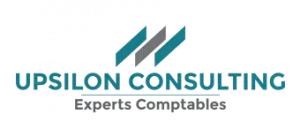Morocco’s Model J: Navigating Business Registration for Global Investors
Morocco’s Model J, the birth certificate of a company
In the vibrant landscape of Morocco’s burgeoning economy, understanding the intricacies of business registration, epitomized by the ‘Model J’, is crucial for global investors and entrepreneurs.
As a gateway between Europe and Africa, Morocco offers a unique blend of cultural richness and business potential, drawing in a diverse array of economic activities. This comprehensive guide aims to demystify the process of registering a business in Morocco, focusing on the pivotal role of ‘Model J’. It serves not just as a procedural manual but also as a strategic tool, providing insights into the Moroccan business environment, legal foundations, and regulatory compliance. Emphasizing Upsilon Consulting’s expertise in navigating these waters, the guide is an indispensable resource for anyone looking to embark on a successful business venture in this dynamic North African nation.
Understanding Morocco’s Model J
Morocco, a country strategically positioned as a gateway between Europe and Africa, presents a flourishing market for investors and entrepreneurs worldwide. Central to establishing a business in this vibrant economy is understanding and obtaining Morocco’s Model J, a critical business registration document akin to a company identity card. Morocco’s Model J, also known as Modèle 7, plays a pivotal role in verifying a company’s legal existence and provides essential details like the company’s legal form, registration number, and head office address.
For foreign investors, Model J is not just a formality but a passport to the Moroccan business realm. It acts as a proof of legitimacy and is often required in various business transactions, partnerships, and regulatory compliance. The process of obtaining Model J involves several key steps, including choosing the right business structure, navigating the legalities of Moroccan corporate law, and ensuring compliance with local regulations. Understanding these nuances is vital for any business looking to establish or expand its operations in Morocco.

This section of the guide aims to provide a detailed overview of Model J, outlining its importance, the information it contains, and the procedures for acquiring it. It serves as a roadmap for navigating the legal and bureaucratic landscape of Moroccan business registration, highlighting the need for thorough preparation and strategic planning.
The Moroccan Business Environment
Morocco’s allure for investors extends beyond its geographical position; it’s also rooted in its diverse and evolving business environment. The nation boasts a mixed economy with significant involvement in various sectors like agriculture, manufacturing, and services. Understanding this landscape is crucial for any business, especially those from abroad, seeking to gain a foothold in the Moroccan market.
The Moroccan government has taken proactive steps to create a business-friendly atmosphere. These include implementing economic reforms aimed at fostering foreign investment and supporting local businesses. Morocco’s free trade agreements with the United States and the European Union further enhance its appeal as an investment destination. For foreign entities, delving into local market trends, consumer behavior, and cultural nuances is not just beneficial for strategic planning but also critical for building connections with local partners and customers.
In this section, we will explore the intricacies of the Moroccan business environment. This exploration will cover the country’s economic sectors, government initiatives for business growth, and the impact of international trade agreements. Understanding these elements is essential for entrepreneurs and investors to navigate the market effectively, make informed decisions, and establish a successful business in Morocco.
Choosing the Right Business Structure
A foundational step in establishing a business in Morocco is selecting the appropriate business structure. This choice significantly impacts various aspects of the business, including legal liability, tax obligations, and the ability to raise capital. Morocco offers several business structures, each catering to different needs and goals of entrepreneurs and investors.
- Sole Proprietorship: This structure is straightforward to set up and is ideal for small, single-owner businesses. However, the owner bears unlimited liability for business debts and obligations.
- Partnership: In a partnership, two or more individuals share ownership. It allows for shared responsibility but also means shared liability.
- Limited Liability Company (LLC): The LLC is a popular choice for its balance of flexibility and protection. Owners enjoy limited liability, meaning their personal assets are generally protected from business debts.
- Joint-Stock Company (JSC): Suited for larger businesses, a JSC is more complex and requires at least five shareholders. It allows for raising capital through the sale of stock.
Each of these structures has its nuances in terms of formation, capital requirements, and governance. Understanding these differences is crucial in making an informed decision that aligns with the investor’s business strategy and goals in Morocco. This section delves into the characteristics of each business entity, helping investors to navigate their options and choose the structure that best suits their venture in the Moroccan market.
Legal Foundations of Business Registration

Establishing a business in Morocco involves navigating its legal landscape, which is a critical step for ensuring compliance and smooth operation. The legal process begins with obtaining a Tax Identification Number (TIN), an essential requirement for all businesses. This identifier is used for tax purposes and is a testament to the business’s legitimacy in the Moroccan market.
The next pivotal step is drafting the Articles of Association. This document is the cornerstone of any business, outlining its purpose, structure, rules, and regulations. It forms the legal basis for the company’s operations and governance. In Morocco, the Articles of Association can be drafted by the founders or a legal professional and must cover all key aspects of the business, including share capital, business activities, and management structure.
Once drafted, the Articles of Association need to be notarized. This process involves verifying the identities of the company’s representatives and the accuracy of the information in the document. Notarization adds a layer of legal validation, making the Articles a binding and recognized document in the eyes of Moroccan law.
These steps form the backbone of the legal foundations for business registration in Morocco. They ensure that a business is set up with a clear legal structure, aligned with Moroccan corporate laws, and prepared for operational and financial activities.
Registration and Compliance Process
Once the legal groundwork is laid, the next crucial phase in establishing a business in Morocco is the registration and compliance process. This involves several key steps, ensuring that the business adheres to Moroccan laws and regulations.
- Filing with the Commercial Registry: The finalization of business registration happens with the Commercial Registry. This process legitimizes the business, providing it with a commercial register number and a business license. Necessary documents for this registration typically include the notarized Articles of Association, tax ID number certificate, and proof of share capital deposit.
- Taxation and Legal Compliance: Post-registration, navigating the Moroccan taxation system is vital. This includes regular tax filings and adhering to local financial regulations. Ensuring ongoing legal compliance is essential for the operational success of the business.
- Employment Laws: Understanding and complying with Moroccan employment laws is critical when hiring staff. This includes adherence to labor codes, social security contributions, and ensuring a legally compliant workplace.
- Additional Licenses and Permits: Depending on the business type, additional licenses and permits may be required. These could range from health and safety permits for restaurants to specific professional licenses for services like accounting or law.
The registration and compliance process, though complex, is a crucial step in establishing a business’s legitimacy and operational framework in Morocco. It requires careful attention to detail and an understanding of the local legal landscape.



